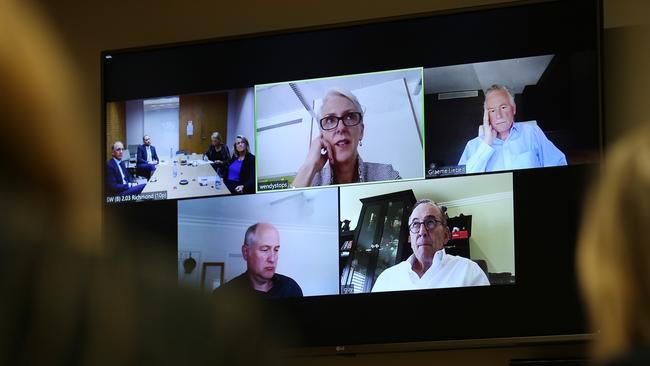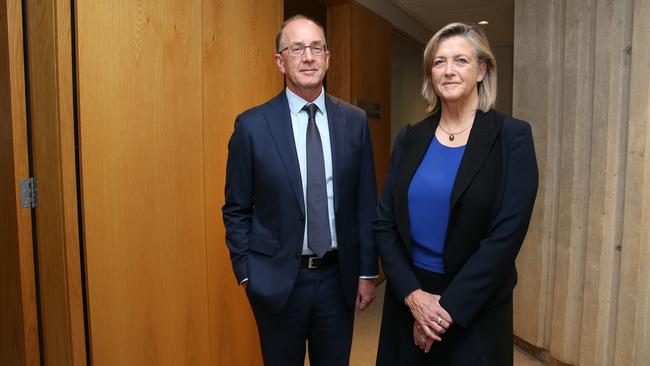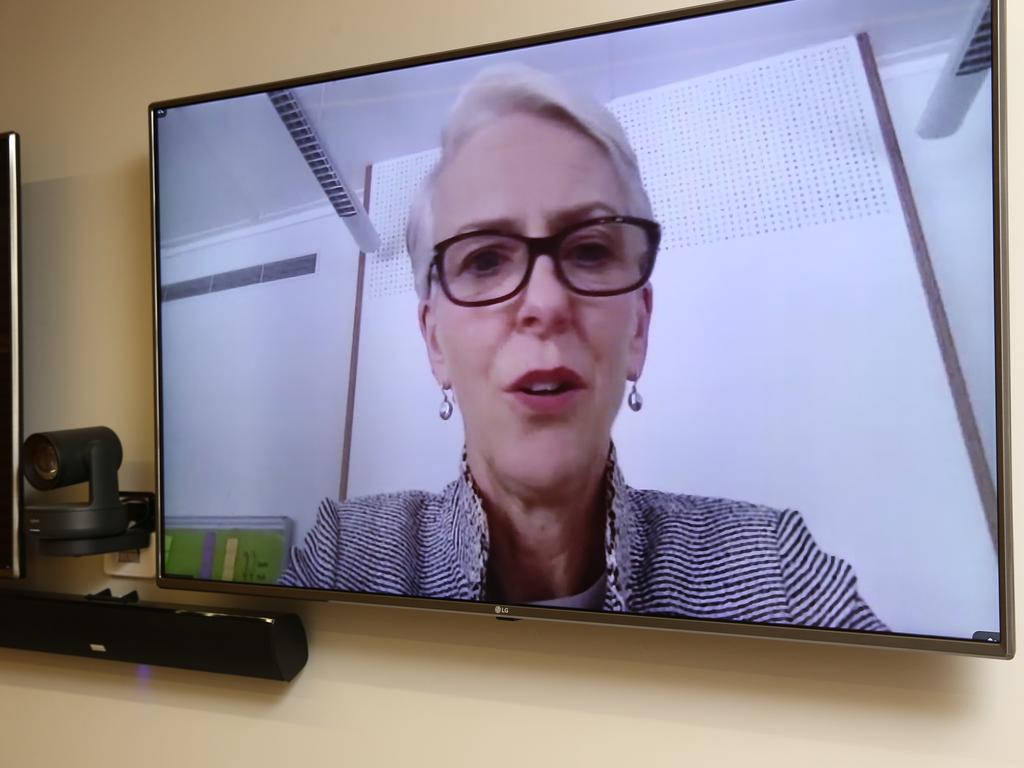AICD round table: Directors warn of gradual economic recovery from Covid
Leading directors of the nation’s top companies have warned of growth expectations getting ahead of reality.

Leading directors of the nation’s top companies have warned of growth expectations getting ahead of reality as executives and politicians suffer from “COVID fatigue” after an unprecedented year of change.
While the directors were optimistic about the outlook amid an expected surge in merger and acquisition activity, they were wary of the unpredictability of the recovery and warned that corporate Australia would need to adjust its expectations on government reform.
“There is a bit of a risk that we get, and expectations get, ahead of reality here,” Amcor chairman and ANZ director Graeme Liebelt told a round table forum with the Australian Institute of Company Directors hosted by The Australian.
“There’s a fair amount of optimism in financial markets, and there’s optimism about vaccines and so on.
“There is a risk that we find that 2021 is going to be a bit of a disappointing year and that the passage out of this COVID crisis, even with a vaccine, takes a bit longer than we expect, and we get a sort of a hangover in the mismatch of expectation and reality.”
Mr Liebelt said he was more optimistic than six months ago about the outlook, but said it was important to acknowledge that “there’s a long way to go before we’re back to anything like the trajectory that we were on before COVID struck”.
“There’s a big output gap between the trend that we were seeing before COVID and getting back onto that trend line will take some years.
“There are still lots of challenges associated with the period coming up — for example, implementing the vaccine in Australia.
“How do we manage the epidemiology of the introduction of the vaccine and the reintroduction of greater openness in business?”
The AICD’s final director sentiment survey for 2020 released earlier this month found 80 per cent of directors expected a rise in mergers and acquisitions over the coming year.
“I was with some investment bankers and private equity people recently and they are saying that the M&A market is getting very active. Intuitively you’d expect that to be the case. The IPO market has been pretty good, but the M&A market is getting very active now,’’ Mr Liebelt said.
BlueScope Steel, Fortescue and Dexus director Penny Bingham-Hall said there was a significant pool of international money looking for a home.
“Australia is still relatively a pretty good place to invest. There’s still a lot of foreign money looking to find a home at the moment,’’ she said.
But she also expects an increase in domestic corporate activity.
“There’s an old expression, you never let a good crisis go to waste. There are always opportunities that come out of this (COVID) and companies that are cashed-up and have done reasonably well are absolutely going to be looking for opportunities and even industries that are going through transition and disruption,’’ she said.
“The strong companies will always look at those opportunities now. And I think for directors, we’ve got to be brave about grabbing those opportunities where we see them.”

Coles director and recently retired Commonwealth Bank board member Wendy Stops said she hoped the energised mindset of companies during the COVID crisis was not lost in the aftermath.
“The hope is that the companies will keep that little bit of culture and mindset that they’ve developed in the last few months and will be able to embed that more into their way of thinking and their ongoing way of innovating and creating and so on,’’ she said.
“I don’t want organisations to feel they can slip back into the old BAU (business as usual).
“I worry that they won’t capitalise on this changing environment to really seize innovation in particular, and new ideas and new ways of doing things and really capitalise on that and move forward. Those companies that really see the door open in terms of those opportunities and innovation are the ones that are really going to prosper.” She said it was up to directors to keep the momentum for change in the boardroom.
“It’s important for all boards to keep the pressure on to think about what is going to be the so-called new normal and what is going to be the new way of doing things, and how can we really capitalise on this sort of new world environment to innovate and take the leap forward,’’ she said.
But Ms Bingham-Hall said there was fatigue among executives and governments after the COVID experience that could not be underestimated.
“Everyone’s been running full tilt. I hope they all got a bit of a break over Christmas.
“People have been working really hard. I think they’ve all stepped up to the challenge incredibly well, working from home, doing things differently. That is something that, as a director, you need to watch a little: how all the teams are,’’ she said.
A recent survey by The Weekend Australian of chief executives of more than 80 of the nation’s largest companies found all were pushing for reforms to tax, industrial relations, education, childcare, aged care, infrastructure and skills development in the post-COVID world.
But Ms Bingham-Hall said it was important business leaders were realistic about reform.
“There’s been so much focus on the health issues, the economic stimulus, that to then think next year we’re going to jump into a whole lot of reform is kind of unrealistic. We still got a tail of dealing with economic issues, health issues, how we move forward,’’ she said.
AICD chief executive Angus Armour added: “Some of the challenges in getting people to overcome the fatigue and embrace reform will be around understanding a shared economic view, a shared economic outcome from reform. That’s going to be the big challenge to focus that narrative.”
Mr Liebelt said while the business community may want rapid, radical reform of taxation, workplace relations and other issues, the reality of the politics was that only incremental reform was likely.
“Certainly we should take advantage of the disruption that’s being caused, take advantage of the crisis that we’ve just had.
“I remain of the view that the sort of changes here, unless we really get our backs to the wall, they’re going to be incremental changes.
“We’re better to think of helping the government making those incremental changes as much as we can and as effectively as possible. But to imagine that they can put in radical change quickly, I think is unrealistic.”
Santos, United and Queensland Sugar director Guy Cowan said he was wary of supply chain constraints across the economy if the nation experienced a rapid economic recovery.
More importantly, he said companies now needed to be prepared for “unknown unknowns”.
“Nobody predicted the pandemic. What’s out there that we don’t know about? I guess all we can do is to make sure that our companies are as resilient as possible.
“If you take Santos, we’ve gone through two major oil price shocks and come through it.
“We’ve now managed the pandemic, and managed to keep operations going. It’s about testing your own internal systems, your supply chains.”






